什么是“20-5-3规则”?
🤔️小作业:
1. What does the phrase "nature-lite" most likely mean in the sentence: “It can be more like ‘nature-lite’ if we're not intentional about the time we spend outdoors.”
A) An artificial simulation of nature
B) A reduced or diluted experience of nature
C) A shorter but more intense exposure to nature
D) A casual appreciation of natural beauty

无注释原文:
This is how much time you should spend outside to reap the health benefits, according to the '20-5-3' rule
From: Yahoo
In our hyper-connected world of social media, Zoom calls and Netflix binges, there's a refreshing antidote — one that's good for your mental health, reduces stress and anxiety and even helps your immune system: being in nature. While any time spent outdoors is advantageous, there's a “prescription” that can help you reap the most benefits. It's spending 20 minutes in your local park three days per week, five hours in a nature preserve each month and three days immersed in the backcountry (think camping or hiking trip) once a year. It's called the 20-5-3 rule, and it's a science-backed formula that could revolutionize how we think about outdoor time.
So why might a quick walk in your neighborhood park require more frequent visits than a weekend in the wilderness? And what are the benefits of enjoying different types of nature? Experts explain.
What is the 20-5-3 rule?
The formula, which was developed by neuroscientist Rachel Hopman-Droste, breaks down like this:
20 minutes at least three days a week in a nearby natural setting, such as a local park or green space (community garden, wetlands or even a row of trees on a neighborhood walk)
5 hours monthly in semi-wild nature, such as state parks or nature preserves
3 days yearly in true wilderness, such as camping or hiking in backcountry or remote locations
Florence Williams, author of Nature Fix and Heartbreak, tells Yahoo Life: “Having a general guideline like this could be helpful to some people. It's worth noting that while these figures are based on a few studies that can be extrapolated to loose averages, it's important for each of us to tune into what we need in a particular week or year.”
Williams explains that when we're experiencing extra stress, trauma or heartbreak, we might need more time in everyday nature spaces or in deep wilderness. “The emerging science is an opportunity for us to notice how we feel when we're outside, to recognize which elements of nature we most respond to and to prioritize doing the things that give us the restoration we need,” she says.
The more time spent in nature, the better
While spending time in your local park is beneficial, it requires more frequent exposure to achieve the same stress-reducing benefits as a deep wilderness experience. That's because in urban green spaces, we're often still tethered to our devices and surrounded by city sounds. It can be more like “nature-lite” if we're not intentional about the time we spend outdoors.
The numbers back this up. Research shows that while a 20-minute walk in nature lowers stress hormones, these levels often bounce back within hours in urban settings. Compare this to multi-day wilderness experiences, where studies have documented health benefits lasting up to a month.
- ◆ -
注:完整题目见本文开头;中文文本为机器翻译并非一一对应,仅供参考
含注释全文:
This is how much time you should spend outside to reap the health benefits, according to the '20-5-3' rule
From: Yahoo
In our hyper-connected world of social media, Zoom calls and Netflix binges, there's a refreshing antidote — one that's good for your mental health, reduces stress and anxiety and even helps your immune system: being in nature. While any time spent outdoors is advantageous, there's a “prescription” that can help you reap the most benefits. It's spending 20 minutes in your local park three days per week, five hours in a nature preserve each month and three days immersed in the backcountry (think camping or hiking trip) once a year. It's called the 20-5-3 rule, and it's a science-backed formula that could revolutionize how we think about outdoor time.
在这个充满社交媒体、视频会议和流媒体娱乐的高度互联世界中,有一种令人耳目一新的方法能够改善心理健康,减轻压力与焦虑,甚至增强免疫系统——那就是亲近自然。虽然任何时间在户外活动都是有益的,但有一种方法能够帮助你最大化地收获这些好处。那就是每周三次在本地公园待上20分钟,每月在自然保护区待上5小时,以及每年三天沉浸于荒野体验(如露营或徒步旅行)。这就是所谓的“20-5-3规则”,这是一个有科学依据的规则,能够彻底改变我们对户外时间的看法。
hyper-
hyper /ˈhaɪ.pər/ 前缀,表示“超出,过度”,英文解释为“having too much of a quality”如:hyperactive 过分活跃的,hypercritical 吹毛求疵的,hypersensitive 过分敏感的。
binge
binge /bɪndʒ/可以作动词,也可以作名词,表示“(尤指在饮食和花钱方面)无节制的狂热行为,狂欢,放纵,狂闹”,英文解释为“If you binge, you do too much of something, such as drinking alcohol, eating, or spending money.”如:a drinking/eating/spending binge 狂饮/暴食/滥花钱,举个🌰:He went on a five day drinking binge. 他连续5天狂饮。
📍binge drinking可以指“暴饮(酒),酗酒”(the activity of drinking too much alcohol on one occasion)。
📍binge watching可以理解为“无节制地狂看某部电视连续剧”或者说“追剧,刷剧”;binge-watch作动词,举个🌰:We binge-watched an entire season of Breaking Bad on Sunday. 我们星期天一口气看完了整季的《绝命毒师》。
📍《经济学人》(The Economist)一篇讲述奈飞(Netflix)的文章中提到:Investors lap it up as hungrily as Netflix binge-watchers, who now number 193m worldwide. 投资者对奈飞的追捧一如从世界各地到它网上追剧的1.93亿人。
antidote
1)表示“解毒剂;(尤指)解毒药”,英文解释为“a chemical, especially a drug, that limits the effects of a poison”
2)表示“矫正方法;缓解办法;对抗手段”,英文解释为“a way of preventing or acting against something bad”举个🌰:Regular exercise is the best antidote to tiredness and depression. 经常锻炼是消除疲劳和抑郁的最好方法。
immune
1)表示“有免疫力”,英文解释为“cannot catch or be affected by a particular disease or illness”举个🌰:Adults are often immune to German measles. 成人往往对风疹有免疫力。
2)表示“不受影响”,英文解释为“not affected by sth”举个🌰:You'll eventually become immune to criticism. 你终究会不用在乎批评了。
3)表示“受保护;免除;豁免”,英文解释为“protected from sth and therefore able to avoid it”举个🌰:No one should be immune from prosecution. 任何人都不应免于被起诉。
prescription
prescription /prɪˈskrɪp.ʃən/ 1)表示“方案;计划;建议;秘诀”,英文解释为“A prescription is a proposal or a plan that gives ideas about how to solve a problem or improve a situation.”举个🌰:So what is his prescription for success? 那么他认为成功的诀窍是什么?
2)表示“处方”,英文解释为“A prescription is the piece of paper on which your doctor writes an order for medicine and which you give to a pharmacist to get the medicine.”举个🌰:The new drug will not require a physician's prescription. 这种新药不需要医生的处方。
3)表示“处方药”,英文解释为“A prescription is a medicine that a doctor has told you to take.”举个🌰:I'm not sleeping even with the prescription he gave me. 我服用了他开给我的处方药还是睡不着。
reap
reap /riːp/ 表示“收割,收获;获得”,英文解释为“to cut and collect a grain crop”
📍reap the benefit, reward, etc.表示“得到收益/报酬等”,英文解释为“to get something good as a result of your own actions”举个🌰:She studied every evening and reaped the benefit at exam time. 她每天晚上都坚持学习,考试时受益匪浅。
📍reap what you have sown表示“种瓜得瓜,种豆得豆;善有善报,恶有恶报”,英文解释为“to win or lose as a result of something you did in the past”
preserve
preserve /prɪˈzɜːv/ 表示“保护,维护;保留;保养”,英文解释为“to keep something as it is, especially in order to prevent it from decaying or being damaged or destroyed”如:to preserve the environment 保护环境。
作名词,preserve /prɪˈzɜːv/ 同reserve, 表示“(尤指野生动物)保护区”
immerse
immerse /ɪˈmɜːs/ yourself in sth 表示“(使)深陷于,沉浸在”,英文解释为“to become or make sb completely involved in sth”举个🌰:She immersed herself in her work. 她埋头工作。
backcountry
backcountry /ˈbækˌkʌn.tri/ 表示“人烟稀少的乡村;偏僻地区;边远地区”,英文解释为“a rural or mountain area that is away from cities and has few people”举个🌰:That night, I camped at Bee Island, one of the park's six backcountry campsites. 那一晚,我在蜂岛上野营,蜂岛是这个公园6片人迹罕至的野营地之一。
revolutionize
revolutionize /ˌrev.əˈluː.ʃən.aɪz/ 表示“使发生革命性剧变;在…方面引起突破性变革”,英文解释为“to completely change something so that it is much better”举个🌰:Newton's discoveries revolutionized physics. 牛顿的发现使物理学发生了革命性剧变。
So why might a quick walk in your neighborhood park require more frequent visits than a weekend in the wilderness? And what are the benefits of enjoying different types of nature? Experts explain.
那么,为什么在附近公园里散步需要比在野外过周末更频繁呢?不同类型的自然体验又有哪些独特好处呢?专家们给出了答案。
What is the 20-5-3 rule? 什么是20-5-3规则?
The formula, which was developed by neuroscientist Rachel Hopman-Droste, breaks down like this:
这个规则是由神经系统科学家雷切尔·霍普曼-德罗斯特(Rachel Hopman-Droste)提出的,具体如下:
- 20 minutes at least three days a week in a nearby natural setting, such as a local park or green space (community garden, wetlands or even a row of trees on a neighborhood walk)
每周3次,每次至少20分钟,在家附近的自然环境中活动,例如当地公园或绿地(社区花园、湿地,甚至街边绿化带)。
- 5 hours monthly in semi-wild nature, such as state parks or nature preserves
每月5小时,身处半荒野的自然环境,如州立公园或自然保护区。
semi-
semi- /ˈsem.i/ 表示“半;部分”,英文解释为“half or partly”如:semi-literate 半文盲。
- 3 days yearly in true wilderness, such as camping or hiking in backcountry or remote locations
每年3天,深入真正的野外,如在野外或偏远地区露营或徒步旅行。
Florence Williams, author of Nature Fix and Heartbreak, tells Yahoo Life: “Having a general guideline like this could be helpful to some people. It's worth noting that while these figures are based on a few studies that can be extrapolated to loose averages, it's important for each of us to tune into what we need in a particular week or year.”
《自然疗法》(Nature Fix)和《心碎》(Heartbreak)作者弗洛伦斯·威廉姆斯(Florence Williams)在接受雅虎生活采访时表示:“对于某些人来说,这种指导原则可能非常有帮助。值得注意的是,虽然这些数字是基于有限的研究数据得出,但我们可以根据自己每周或每年的实际需求调整。”
extrapolate
extrapolate /ɪkˈstræp.ə.leɪt/ 表示“推断;推知”,英文解释为“to guess or think about what might happen using information that is already known”举个🌰:You can't really extrapolate a trend from such a small sample. 你不能仅凭这样一件小小的样品就推断出潮流真正的发展趋势。
Williams explains that when we're experiencing extra stress, trauma or heartbreak, we might need more time in everyday nature spaces or in deep wilderness. “The emerging science is an opportunity for us to notice how we feel when we're outside, to recognize which elements of nature we most respond to and to prioritize doing the things that give us the restoration we need,” she says.
威廉姆斯解释说,当我们经历额外压力、创伤或情感困扰时,我们可能需要更多时间亲近自然空间或深入荒野体验。“最新科学研究提醒我们关注户外活动的益处,找到自己与自然最和谐的接触方式,并优先进行那些能够让我们恢复活力的活动,”她说。
trauma
trauma /ˈtrɔːmə/ /ˈtrɑː.mə/ 表示“精神创伤,心理创伤”,英文解释为“(a) severe emotional shock and pain caused by an extremely upsetting experience”举个🌰:He had psychotherapy to help him deal with his childhood traumas. 他进行了心理治疗以医治童年时代受到的心理创伤。
The more time spent in nature, the better 在大自然中度过的时间越多越好
While spending time in your local park is beneficial, it requires more frequent exposure to achieve the same stress-reducing benefits as a deep wilderness experience. That's because in urban green spaces, we're often still tethered to our devices and surrounded by city sounds. It can be more like “nature-lite” if we're not intentional about the time we spend outdoors.
虽然在本地公园短暂停留能够缓解压力,但要达到与荒野深度体验相同的效果,需要更高频率的接触。这是因为城市绿地往往伴随着设备干扰和城市噪音。如果不刻意安排,这种体验可能只是“表层自然”。
tether
tether /ˈteð.ər/ 作名词,表示“(尤指拴动物的)系绳;拴链”,英文解释为“a rope or chain used to tie, especially an animal, to a post or other fixed place, usually so that it can move freely within a small area”
tethered /ˈteð.əd/ 表示“束缚”,英文解释为“tied to a post or fixed to the ground with a rope or chain”如:a tethered goat 拴着的山羊。
The numbers back this up. Research shows that while a 20-minute walk in nature lowers stress hormones, these levels often bounce back within hours in urban settings. Compare this to multi-day wilderness experiences, where studies have documented health benefits lasting up to a month.
数据证明了这一点。研究表明,虽然在大自然中散步20分钟可以降低压力激素,但在城市环境中,压力激素水平往往在几小时内就会反弹。相比之下,多日的野外体验对健康的益处可持续长达一个月。
hormone
hormone /ˈhɔːməʊn/ 表示“激素;荷尔蒙”,英文解释为“a chemical substance produced in the body or in a plant that encourages growth or influences how the cells and tissues function; an artificial substance that has similar effects”如:growth hormones 生长激素。
bounce back
bounce back表示“恢复;恢复元气;重振旗鼓”,英文解释为“to start to be successful again after a difficult period, for example after experiencing failure, loss of confidence, illness, or unhappiness”举个🌰:Stock prices bounced back after a steep plunge earlier this week. 股票价格在本周早些时候急剧下跌后又回弹了。
bounce /baʊns/ 1)表示“(使)弹起,(使)反弹;反射;跳跃”,英文解释为“to (cause to) move up or away after hitting a surface”举个🌰:She bounced the ball quickly. 她快速地拍球。
2)表示“(人)蹦蹦跳跳”,英文解释为“to move in an energetic and enthusiastic manner”举个🌰:He bounced in, smiling broadly. 他蹦蹦跳跳地进来了,脸上笑开了花。
- 词汇盘点 -
hyper-、 binge、 antidote、 immune、 prescription、 reap、 preserve、 immerse、 backcountry、 revolutionize、 semi-、 extrapolate、 trauma、 tether、 hormone、 bounce back
- 词汇助记 By DeepSeek -
A hyperactive immune system, tethered to childhood trauma, led to binge behaviors. The prescription: semi-wilderness immersion in the backcountry. This revolutionized therapy, an antidote letting patients bounce back, reaping hormone balance while preserveing mental health—data extrapolated to urban clinics.
- 推荐阅读 -
日更10年,我是怎么坚持下来的
为了这个合集,准备了整整51个月
「LearnAndRecord」2024盘点
有人听写吗?推荐练听力小程序
- END -
LearnAndRecord
2015年2月8日
2025年4月5日
第3710天
每天持续行动学外语


财经自媒体联盟

4000520066 欢迎批评指正
All Rights Reserved 新浪公司 版权所有


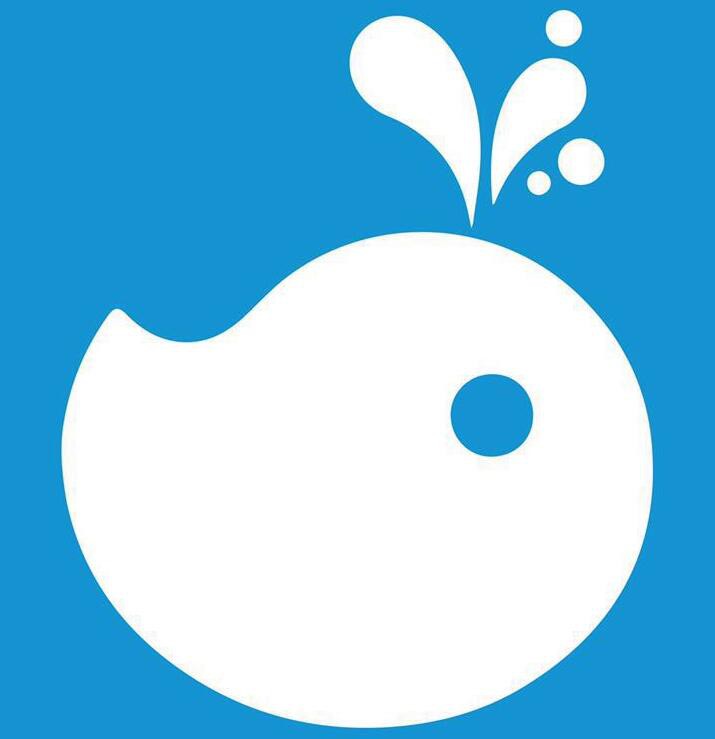


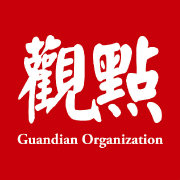


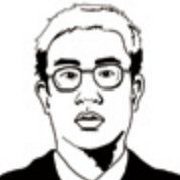


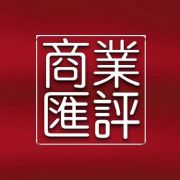


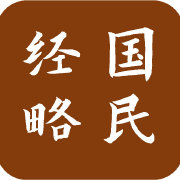
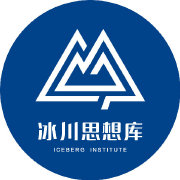


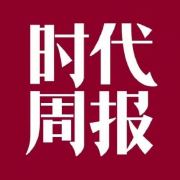




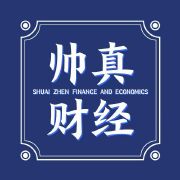

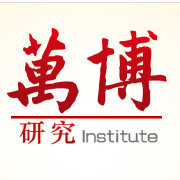
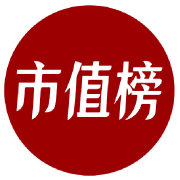

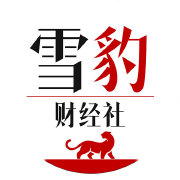
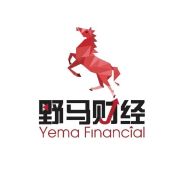


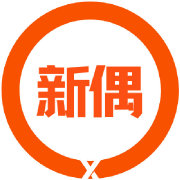


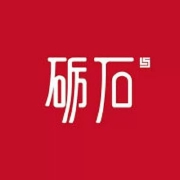

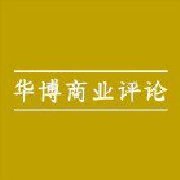
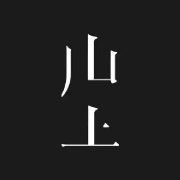


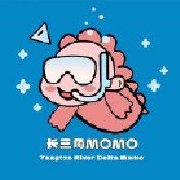
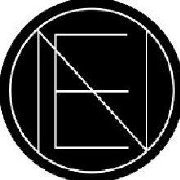
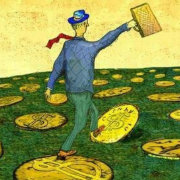



 第一财经日报
第一财经日报  每日经济新闻
每日经济新闻 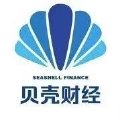 贝壳财经视频
贝壳财经视频  尺度商业
尺度商业  财联社APP
财联社APP  量子位
量子位  财经网
财经网 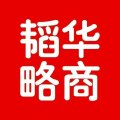 华商韬略
华商韬略